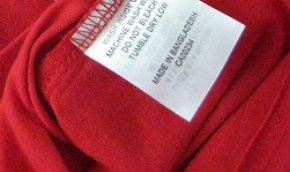Bangladesh, guilt and solidarity

By the time Bangladeshi authorities finally stopped searching for bodies in the rubble of a garment factory on Monday, the death toll had reached 1,127. In the meantime, a fire at another factory nearby had killed eight more. In one incredible story, a woman survived, trapped in the collapsed building, for 17 days before finally being rescued. Her refusal to be the 1,128th person to die was a small piece of good news amid a whole heap of bad.
The disaster in Bangladesh is a classic example of the kind of thing that Americans feel powerless to prevent. Some commentators don’t seem overly bothered by this. Richard Epstein thinks there’s pretty much nothing anyone can do except for enforce existing Bangladeshi safety codes, which would have the added benefit of weakening unions. (Epstein sees organized labor as not only a non-solution but actually a cause of the disaster.) Even the more liberal Matthew Yglesias took the disaster as an opportunity to point out that different countries inevitably put different levels of priority on worker safety, and that’s okay. (He later sort of apologized.)
But even those of us who are furious that global capitalism can lead to such mayhem aren’t always sure what we can do about it. You can buy fewer clothes or used clothes or make your own, but it’s pretty difficult to opt out of the global garment trade altogether. And even if you could, what would this accomplish? The globalization cat’s out of the bag. The factories aren’t going away, and at this point it wouldn’t be a net positive for these countries if they did.




